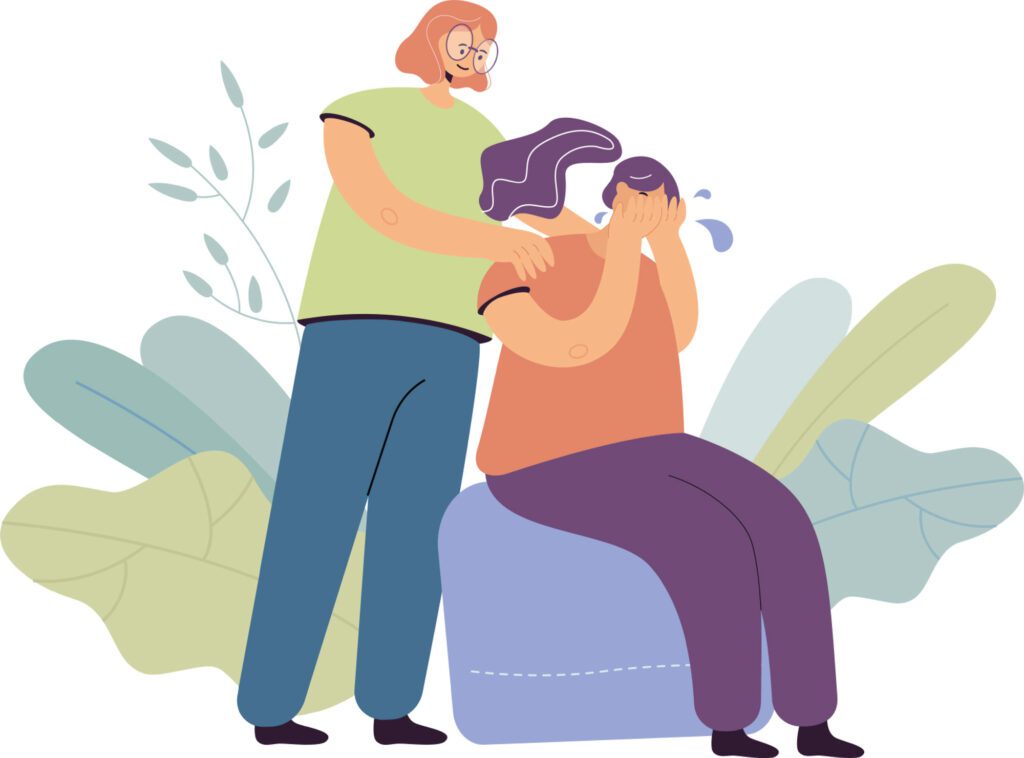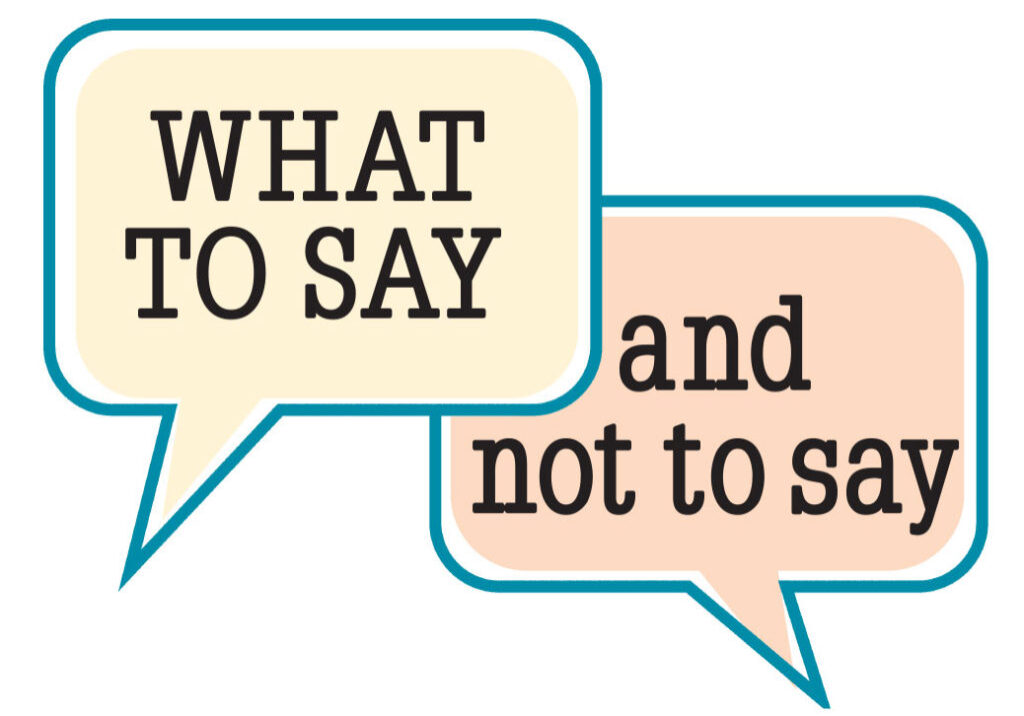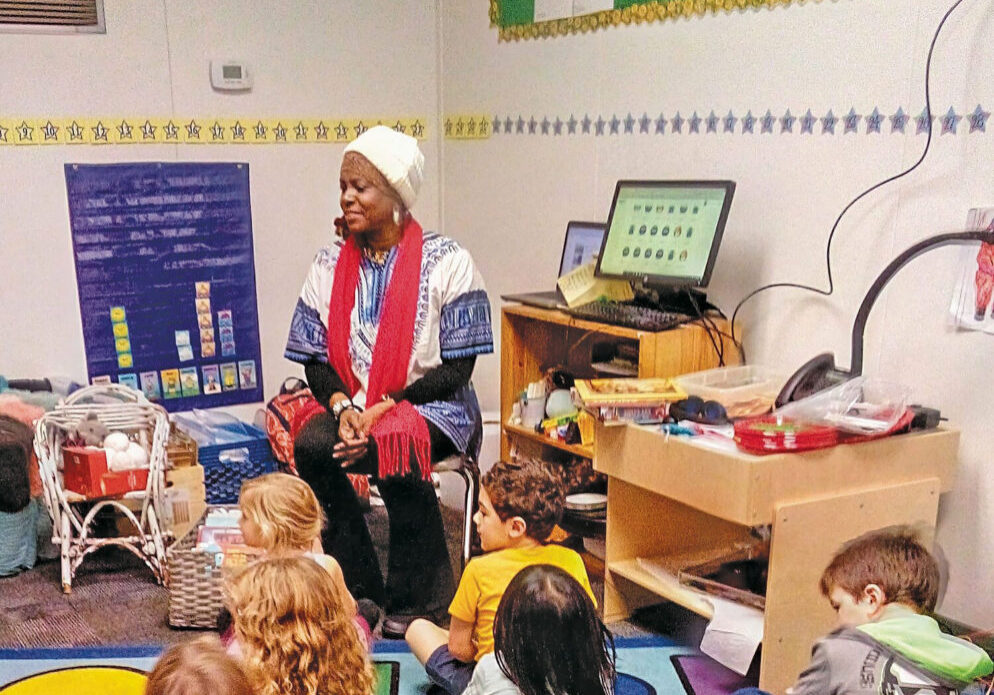According to Jen Nilsson on her blog about grief, “Lens of Jen,” the single best thing you can do when offering comfort is to SHOW UP. “Whatever you do,” Jen says, “don’t talk yourself out of reaching out. Don’t search so long for the right words that you settle on no words at all.”
Sherly Sandburg, in Option B: Facing Adversity, Building Resilience and Finding Joy, says, “I couldn’t understand when friends didn’t ask how I was? I felt invisible, as if I was standing in front of them but they couldn’t see me. When someone shows up with a cast, we immediately ask ‘What happened?’ If your ankle gets shattered, people want to hear the story. If your life gets shattered, they don’t.”
Sometimes it’s hard to know the right thing to do or we are afraid of saying or doing the wrong thing. Here are a few tips and guidelines about what to say and do, and what not to say or do, when someone you know is grieving.

Helpful Things to Say After Someone Experiences Loss
- I’m sorry for your loss.
- My thoughts are with you.
- Our thoughts and prayers are with you and your family.
- My heart goes out to you.
- I am sending you comfort and strength.
- I can’t imagine what you’re going through.
- I don’t know what to say, I wish I had the right words to comfort you.
- Wishing you peace during this difficult time.
- If you know the person who died: “My favorite memory of [insert name] is…”
- If you don’t know the person who died: “Tell me about [insert name]”
- My (our) condolences on your loved one’s passing. May their memory bring you comfort.
- (Deceased) was a fantastic person and everyone will miss them.
Helpful Things to Do for Someone in Grief
- Listen. Don’t judge, interrupt or offer advice. Just listen with a sympathetic ear. Let them know it’s ok not to be ok.
- Bring flowers over (with a vase) or deliver something edible.
- Check in frequently AND check in on their support team. Don’t disappear.
- Remember death anniversaries and the birthday of the person who died. Don’t be afraid to reach out on those trigger dates.
- Accept their grieving process whatever it may be without judgment.
Examples of Helpful Words to Offer Direct Support
- I am here for you whenever and wherever you need me. Saying that rather than “how can I help” shows that you are available without placing your own need to help on the shoulders of the griever.
- I’m leaving my phone on in case you want to talk.
- I can be at your house by 5:00. Let me come over and help however you need it.
- I’m here to drive you around, bring you food, clean your kitchen, run errands, make phone calls or do anything else you need.
Things Not to Say to Someone in Grief
- Don’t use false-comfort clichés. Often, they begin with “at least.” Example: “At least he is no longer in pain.”
- God only gives us what we can handle.
- There is a reason for everything.
- You’ll get through it, be strong.
- He brought this on himself, it was his fault.
- She’s in a better place.
- It’s been a while, aren’t you over her yet?
- He lived a long time, at least he didn’t die young.
- God must have wanted her there because she was such a good person.
- You’re young.
- Let me know if you need anything. (Better to offer specific help.)
- Did he (smoke, drink, do drugs)?
- You will find love again.
- I know how you feel.
- It was God’s plan.
- You’ll move on in time.
Things Not to Do for Someone in Grief
- Don’t compare their loss to a loss you might have endured. Each loss is unique. Each person grieves differently and views grief differently.
- Don’t offer advice unless asked for it.
- Don’t offer your own story unless asked.
- Don’t disappear. Instead, stay in touch, check in. Sometimes just being there with a hug, meal prep, cleaning, etc. is enough to help the grieving person to feel they are not alone.
Posted in: Family Life & Support
Comment Policy: All viewpoints are welcome, but comments should remain relevant. Personal attacks, profanity, and aggressive behavior are not allowed. No spam, advertising, or promoting of products/services. Please, only use your real name and limit the amount of links submitted in your comment.
You Might Also Like...

Breastfeeding: Challenges and Solutions
As an Integrative Airway and Feeding chiropractor, I love helping moms and babies with breastfeeding issues. My journey with these families often begins during the prenatal phase. Comfortable prenatal experiences […]

‘The Opt-Out Family’: How One Family Chose Being Present Over Tech
For many parents, tackling tech is an overwhelming issue and the stakes have only gotten higher since the U.S. surgeon general released his report on the devastating effects of social media on […]

Preparing Your Child for a New Sibling
Preparing your child to welcome a new sibling is both exciting and challenging. While this can provide your older child with a lifelong friend and playmate, the soon-to-be big sibling […]

Postpartum: Tips for a Healthy Recovery
Throughout your pregnancy, you eat the right foods, drink plenty of fluids, rest and try to keep stress to a minimum. You might think once your baby arrives that you […]




